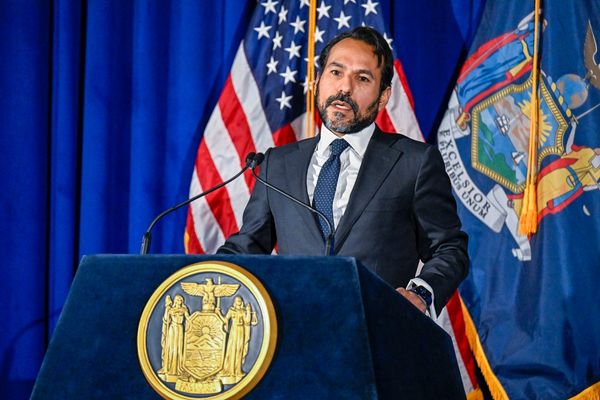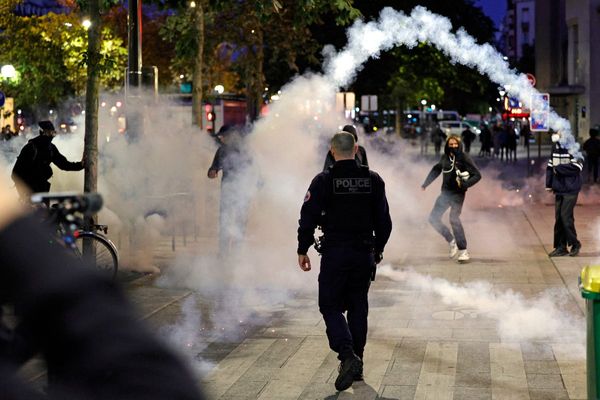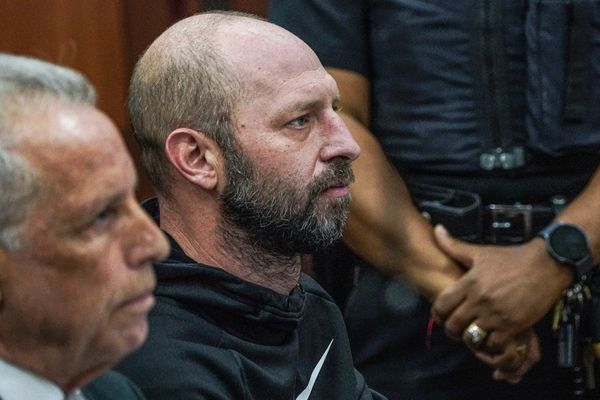In the history of composing music, few artists match Ryuichi Sakamoto.
The Tokyo-born global star has been hailed by some observers as the greatest musician of Japan. He arrived in the music industry at a dynamic time. Synthesizers and other electronic equipment literally changed the nature of human-created sounds.
Without doubt, Sakamoto (1952-2023) and his peers embraced the new technology early. This decision helped spawn numerous genres, from techno-pop to disco to EDM (electronic dance music). So why does Sakamoto stand out to this day?
"What impressed me about Sakamoto? He was never far from a melody," Ashley Revell, a Los Angeles-based composer and multiple Emmy Award-nominated sound editor, told IBD. In contrast, his contemporaries "were experimental and offered a collection of sounds. Amazing sounds. But with Ryuichi, they were beautiful melodies."
Ryuichi Sakamoto: Find An Early Hit
For instance, consider the 1980 work "Riot in Lagos" from his solo album B-2 Unit. Sakamoto turned electronic chirps, beeps and other sounds into a timeless piece of toe-tapping, hum-worthy music.
The pentatonic composition uses just five notes on a standard eight-tone treble clef. Yet a listener can quickly recognize and instantly remember the melody. The polyrhythmic beat pays homage to African rhythms. Some critics point to Southeast Asian influences. They refer to the soft, soothing tones of the gamelan, a type of xylophone developed in Java, part of present-day Indonesia.
"Sakamoto's solo records proved equally significant, continuing to unlock the potential of nascent music hardware," Kevin Nguyen, former editor at GQ magazine, wrote in a March 2023 article. "He was a pioneer of synths, sequencers and drum machines. Though his fame was, at the time, confined mostly to Japan, his work was foundational for pop, electronica and hip-hop around the world."
The Guardian newspaper noted "Riot" as the sixth most important event in the history of dance music, Nguyen wrote.
Set 'The Revenant' Mood
More than three decades later, Sakamoto teamed up with Alva Noto of Germany to score music for "The Revenant," a 2015 film about the North American frontier.
Indeed, Sakamoto encased solemn, somber sounds from the piano, cello and other stringed instruments. The melody matches the movie's grim, stark setting. Yet Revell points out more Sakamoto touches. One example? The quiet howls of a low-pitched wind permeate the song. They add ambience.
"It comes from his experimental roots, his need to put something in there that is distinctively Sakamoto," Revell said. Revell created numerous works in the "chill music" genre under the label Ashertique on Spotify.
IBD's William O'Neil: Live With Purpose
Ryuichi Sakamoto: Hit Global Acclaim
From early success as co-founder of Yellow Magic Orchestra in 1978, Sakamoto sprang into a vibrant and ever-evolving solo career. It spanned from songwriting and creating musical scores for movies to conducting his works on a global stage.
Even before writing music for "The Revenant," he created the theme music for "The Last Emperor." For that effort, Sakamoto won an Oscar and a Grammy in 1988 for original music score. Director Bernardo Bertolucci egged on Sakamoto to make the music "more emotional, more emotional!" according to the New York Times.
Sakamoto absolutely delivered. The music harmonizes Western and Chinese instruments, such as the pipa (lute), guzheng (tabletop zither) and erhu (two-stringed fiddle). The music deepens the movie's emotional wells of tragedy and love.
Before, Sakamoto wrote the score for the 1983 movie "Merry Christmas, Mr. Lawrence." He also acted in the film alongside global music star David Bowie. Sakamoto also composed for "The Sheltering Sky." The drama starred Debra Winger and John Malkovich.
Sakamoto won a BAFTA in 1983 for "Merry Christmas, Mr. Lawrence." In addition, he snatched two Golden Globe Awards in 1990 for "The Last Emperor" and "The Sheltering Sky."
Not long after, Sakamoto composed and conducted the music for the opening and closing ceremonies of the 1992 Summer Olympic Games in Barcelona, Spain. One of his compositions, "La Mer Mediterranean," depicted the ocean.
Tap Childhood Influences
Ryuichi Sakamoto was born in the Nakano district of Tokyo on Jan. 17, 1952. His father Kazuki was a high-profile literary magazine editor. His mother Keiko (nee Shimomura) designed women's hats.
While some historians note that Sakamoto began learning the piano at age 6, some say he started as early as 3. Nonetheless, he began to compose songs as a young boy. He considered German Johann Sebastian Bach and Claude Debussy as big influences.
"I started with Bach, went through Beethoven, Schumann, Brahms and Wagner in the Romantic period, then Faure, Debussy, Ravel, Stravinsky and Bartok, and after that came contemporary music," Sakamoto said in a 1979 interview by Masakazu Kitanaka.
However, jazz and rock 'n' roll also influenced Sakamoto in his teenage years.
After graduating from Tokyo Geijutsu Daigaku (Tokyo University of the Arts) in 1976 with a degree in musical composition, he worked as a keyboard player and arranger. Plus, Sakamoto joined Tokyo's free-jazz scene.
"In later life, he didn't like being identified as a pianist because of what he perceived as his own technical limitations," Sasha Frere-Jones wrote in the New Yorker in an October 2023 article.
Ryuichi Sakamoto Created Electronic Magic With Friends
In 1978, amid growing interest in synthesizers made by Roland and other electronic firms, Sakamoto, bassist Haruomi Hosono and drummer Yukihiro Takahashi created Yellow Magic Orchestra. Certainly, the musicians admired the success seen in songs such as the Giorgio Moroder-produced smash song "I Feel Love" by Donna Summer.
And YMO immediately gained acclaim. The band appeared on the popular dancing show "Soul Train."
"Much of early hip-hop owes its sound to the band's novel approach to sampling and looping," Nguyen wrote. "You wouldn't have had the U.S. or U.K.'s new wave movement without Sakamoto's ingenuity with the Moog synthesizer and Roland TR-808."
Not surprisingly, Sakamoto collaborated with other great musicians, including David Byrne, lead vocalist of the hit band Talking Heads and a hugely successful solo artist. The thin, clean-shaven musician also worked with David Sylvian, frontman and songwriter of the English band Japan, German composer Carsten Nicolai (who went by the artist name Alva Noto) and Senegalese hitmaker Youssou N'Dour.
Sakamoto: Know Music Vs. Nature
After meeting with Sakamoto in New York's West Village, Nguyen of GQ Magazine wrote, "'All music is artificial,' he said. 'People craft it with material from nature. In fact, art is an abuse of nature, of sorts.' The thought pained him."
In the documentary film "Coda," Sakamoto called the piano a product of the industrial revolution. Humans applied "tremendous force" to turn wood and metal into an instrument of music.
"Matter taken from nature is molded by human industry, by the sum strength of civilization," Sakamoto was quoted as saying in "Coda." So, how did Sakamoto reconcile the two forces? Perhaps the answer was creating works of beauty and art.
How Cava CEO Brett Schulman Managed The Restaurant Chain To Success
Fight Against Cancer
Sakamoto took a break after doctors discovered throat cancer in 2014. Yet he stayed determined to keep writing and performing music even in poor health. One year later, Sakamoto returned to the scene after Inarritu asked him to write music for "The Revenant."
No doubt, Sakamoto lived up to the motto "Ars longa, vita brevis." Loosely translated, this means "Art takes time. Life is brief."
Ryuichi Sakamoto died on March 28, 2023, after a battle with rectal cancer.
Well before that, France's Ministry of Culture awarded him the Ordre des Arts et des Lettres in 2009. Today, his YouTube channel has 269,000 subscribers.
Ryuichi Sakamoto's Keys:
- Oscar- and Grammy-winning composer, pianist and producer who pioneered several types of electronic music.
- Overcame: An initial diagnosis of throat cancer in 2014.
- Lesson: "I have to follow my instinct and intuition and curiosity."
Please follow Chung on X/Twitter: @saitochung and @IBD_DChung







